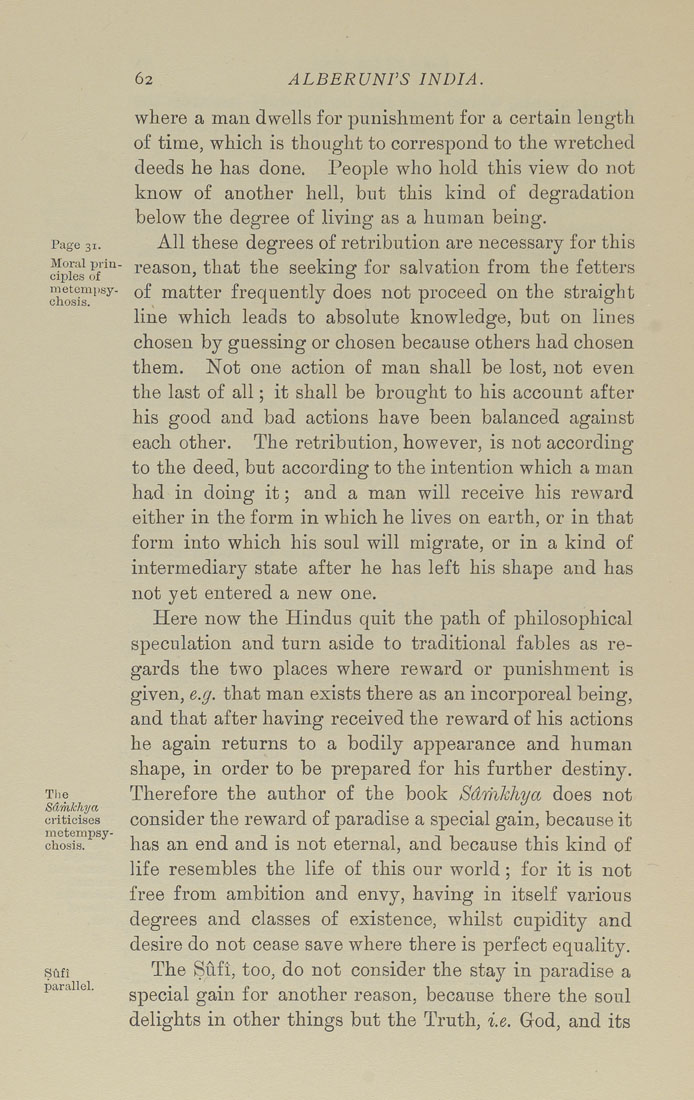Bīrūnī, Muḥammad ibn Aḥmad, Alberuni's India (v. 1)
(London : Kegan Paul, Trench, Trübner & Co., 1910.)
|
||
|
|
|
|
| Page 62 |

62 ALBERUNPS INDIA. Page 31. Moral prin¬ ciples of metempsy¬ chosis. The Sdmkhya criticises metempsy¬ chosis. Sftfi parallel. where a man dwells for punishment for a certain length of time, which is thought to correspond to the wretched deeds he has done. People who hold this view do not know of another hell, but this kind of degradation below the degree of living as a human being. All these degrees of retribution are necessary for this reason, that the seeking for salvation from the fetters of matter frequently does not proceed on the straight line which leads to absolute knowledge, but on lines chosen by guessing or chosen because others had chosen them. Not one action of man shall be lost, not even the last of all; it shall be brought to his account after his good and bad actions have been balanced against each other. The retribution, however, is not according to the deed, but according to the intention which a man had in doing it; and a man will receive his reward either in the form in which he lives on earth, or in that form into which his soul will migrate, or in a kind of intermediary state after he has left his shape and has not yet entered a new one. Here now the Hindus quit the path of philosophical speculation and turn aside to traditional fables as re¬ gards the two places where reward or punishment is given, e.g. that man exists there as an incorporeal being, and that after having received the reward of his actions he again returns to a bodily appearance and human shape, in order to be prepared for his further destiny. Therefore the author of the book Sdmkhya does not consider the reward of paradise a special gain, because it has an end and is not eternal, and because this kind of life resembles the life of this our world; for it is not free from ambition and envy, having in itself various degrees and classes of existence, whilst cupidity and desire do not cease save where there is perfect equality. The Sufi, too, do not consider the stay in paradise a special gain for another reason, because there the soul delights in other things but the Truth, i.e. God, and its |
| Page 62 |







